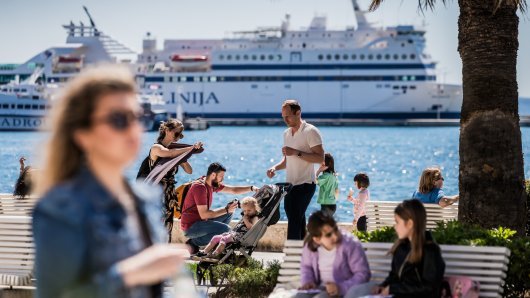Addressing a two-day money conference in the coastal resort of Opatija on Monday, the Croatian National Bank (HNB) Governor Zeljko Rohatinski said that 2010 would a year of stagnation without structural changes on the Croatian money market.
Everything indicates that the monetary policy has been timely and efficient, perhaps too efficient which is why an impression has been created that in times of crisis we can live and work the same way we did before. Thus, strength and motives have been lacking for changing things, the governor said at the 13th annual scientific conference on Croatia's money market.
Nothing can change overnight, but one could have worked in the direction of changes in the public, banking and business sector, he said.
Therefore we are now in the survival phase and not fast recovery phase, the governor said.
He went on to say that there were no sound arguments for the HNB to further reduce mandatory reserve rates.
"This could only lead to a further deterioration in the balance of payment account," the central bank's head said, adding that one should also consider inflation rates.
On the basis of the current liquidity and trends on the global financial markets, the total credit placements in Croatia could increase by about 6 per cent this year. Loans granted to the state are likely to rise by some 10 per cent, and loans granted to other sectors are expected to increase by 5 per cent, he said.
He projected a halt in the reduction of the bank money and a rise in the money supply between 6 and 8 per cent.
This will bring relaxation in comparison to 2009 and will have an effect on the capital market with an increase in turnover and in prices, although there is no reason for price rise, he added.
A prerequisite for rising employment is sustainable economic growth which has so far been limited by the current account deficit and the external debt, Rohatinski said.
In 2009, imports fell by 25 per cent, exports by 19 per cent and direct foreign investments were cut by half. Also, the current account deficit was cut from 9.2 per cent to 5.2 per cent of GDP, but this 5.2 per cent still poses a huge problem as the country's external debt was increased from 83 per cent to almost 100 per cent of GDP, he said adding that the current account deficit would likley not be reduced in 2010.
The governor welcomed activities aimed at co-financing loans in flat building and the kickstarting of infrastructure projects such as road construction but warned that this would not help efforts to find long-term solutions to structural problems.
The two-day conference in Opatija was opened by Prime Minsiter Jadranka Kosor on Monday morning.































